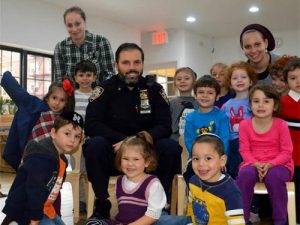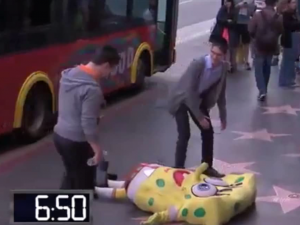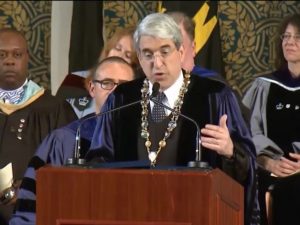A determined woman from Brooklyn is a dedicated matchmaker, but her matches can take an unusual, formidable amount of encouragement and legwork to pull off.
Chaya does not bring people together for marriage, but to save lives. Her couples will not meet under the chuppah, but in the operating room.
Chaya is known throughout the world as the uniquely dedicated, unstoppable Kidney Matchmaker.
A friendly, gregarious young woman from Borough Park, Brooklyn, Chaya has grown what started as a fairly casual response to an ad some eight years ago into unending volunteer work, ’round the clock, from her small Brooklyn apartment. Her main work tools are the Internet, phone, and passionate focus. She receives and sends calls and e-mails from all over the globe, and posts on various websites and Yahoo groups, using many resources to make her precious matches—matching a living kidney donor with a person in need of a kidney transplant to survive.
Sometimes a life mission seems to find us, or we grow into it, step by step. Chaya did not declare, “I want to be a kidney matchmaker when I grow up.” It all started rather simply.
“Back in 2003 or so, I once overheard someone crying, because her husband needed an organ transplant and couldn’t get one.
“The following year I noticed an ad asking for a kidney donation. It said, ‘Help save a life—fulfill a once-in-a-lifetime mitzvah—modern, fast, easy process for donors.’ That sounded pretty dramatic. ‘Wow,’ I thought, ‘how many opportunities would I have do be able to a once-in-a-lifetime mitzvah . . . and to save a life too!’ I remembered the crying woman, and decided to look into the donation procedure. The ‘modern, fast, easy’ description put me at ease, at least enough to consider it.
“So I contacted the hospital, and they sent me the information. It didn’t seem like such a big deal. I wasn’t scared, and I decided I’d try to donate one of my kidneys. It takes a while to find a compatible match and for the timing to work out. After several attempts to donate that didn’t work out for various reasons, I donated a kidney in September 2005.
“Afterwards, I did have the satisfaction of my donation, but I kept seeing more ads. I wanted to do more. I felt like I hadn’t done enough. What about all these other people who needed a kidney?”
Chaya was not content to sigh and figure that someone, somewhere, somehow, would take care of this problem. She certainly had done a lot, giving up part of her body, a vital organ—a tremendous altruistic act. But she didn’t rest on her quite substantial laurels. With straightforward determination, she took steps to do what she could.
She realized the Jewish Marketplace Expo was coming to the Jacob Javits Convention Center in Manhattan, an enormous gathering of thousands of people. Chaya remembers thinking, “I’ll have a booth, and give out flyers; a lot of people can be educated about kidney donation. True, it would be an expense, but where there’s a will, there’s a way.” New York Assemblyman Dov Hikind got wind of Chaya’s big thinking, and arranged to have thousands of her flyers printed.
Chaya has been proclaimed a Health Hero by Prevention Magazine, and was honored by Kings County District Attorney Charles HynesShe credits a previous job with giving her the basic know-how to get started. “I had worked for a Jewish nonprofit organization for many years. We occasionally hosted booths at events, which is where I got the idea.” Chaya grew up watching her mother, “who was always doing things to help, and going out of her way for people.” Chaya now devotes much of her time and energy to giving others a new lease on life.
“The expo helped build awareness, and got me going. After that experience, I handed out packets of information on kidney donation at a Chinese auction and other community events.” Brooklyn Borough President Marty Markowitz and Assemblyman Dov Hikind featured her in their community publications. Chaya has been proclaimed a Health Hero by Prevention Magazine, and was honored by Kings County District Attorney Charles Hynes.
Things started snowballing. Someone read about Chaya, who knew someone from National Public Radio, and Chaya was featured on This American Life, an NPR show with over one and a half million listeners. This vast publicity led to a significant number of kidney donations and kidney chains.
She started posting on websites, posting flyers, working to get the word out about the need for donors. As there is no national registry for living donors, the chance of finding living donors is increased by the kind of diligent networking Chaya excels at.
Chaya is often asked: Aren’t people at greater risk if they donate, and then have only one remaining kidney? She is ready, with quotes from medical experts.
Just think. People born with only one kidney have no problems, so we have to ask, why did G?d give us two kidneys? Perhaps it is so you would have an extra one to donate and save a life!
—Dr. Stuart Greenstein, kidney transplant surgeon, Montefiore Medical Center, Bronx, N.Y.
We are born with approximately 4–5 times the kidney function that we need, to be healthy and stay off of dialysis—to not have kidney failure. So by donating one of your kidneys, you are still left with 2–3 times the amount of kidney function that you need to be healthy and lead a normal life.
—Dr. Joseph Del Pizzo, assistant professor of urology and director of laparoscopic surgery, New York Presbyterian Hospital, Weill Cornell Medical Center, New York, N.Y.
She is quick to point out that when someone develops kidney disease, G?d forbid, it affects both kidneys simultaneously. And, she adds, about one in 750 people are born with only kidney, and most go on to lead normal lives without even knowing this.
The extremely extensive testing done to screen donors precludes all but the most healthy from donating. As a side benefit, the testing, usually covered by the recipient’s insurance, is more thorough and exacting than many people can afford to have done on their own. Chaya relates many cases where potential donors’ lives were saved. They stepped up to do the big mitzvah of donating, and discovered health problems of their own during the screening, which led to timely intervention and treatment. “I remember one man in his twenties. One of the last tests, a CT scan on the kidneys, showed part of his lungs as well; lung cancer was detected, way before any symptoms developed. The cancer was removed, and his own life ended up being the one saved.”
I have donors thanking me afterwards. They donated a kidney, they saved a life, yet they thank me, they feel that their lives have been enrichedSometimes a close relative or friend wants to donate, but they’re not a match for their loved one in need. Then what? Chaya has been involved in helping put together kidney donors in swaps for people who have a hard time finding a match due to high antibodies. The donor in the swap gives his kidney to someone else, and in return, the person for whom he initially tested and for whom he wasn’t a match receives a kidney from someone else in the swap. Sometimes swaps can have a domino effect and turn into kidney chains.
She does warn that should one decide to donate, many friends and relatives may try to talk the giver out of it, so the potential donor needs to stock up on facts and support. Doubts, backouts—sometimes because of fear or family objections, other times because of medical issues—make the work intense. Chaya spends most of her waking hours plugging away. “Someone contacted me recently, and it was very complicated. Today we had about 25 e-mails back and forth, working through different issues.”
Rabbi Ephraim Simon, director of Chabad of Teaneck, had been reading kidney requests that Chaya posted on his community e-bulletin board for years. One day he saw one about a 12-year-old girl who needed a kidney to live. “How can I let a 12-year-old girl die?” he asked his wife. The Simons had a daughter of the same age too. He decided to answer the request, but another compatible donor had already been found. Simon ended up donating a kidney to a 51-year-old father of ten, with whom Chaya matched him up.
Rabbi Simon’s donation has had an uplifting ripple effect on his community, inspiring others to be more giving, each in their own way. He has no regrets. “If I can save a human being, and give a father of ten back to his children and a husband back to his wife, that reward outweighs the risk,” said Simon. “Every time we get in a car, we take risks. It was just an amazing experience, right up there with the birth of my nine children.”
We are born with approximately 4–5 times the kidney function that we needDonors often share Rabbi Simon’s feelings. “What really blows my mind,” Chaya says, “is that I have donors thanking me afterwards. They donated a kidney, they saved a life, yet they thank me, they feel that their lives have been enriched. And they are also grateful that I helped them through the process.”
Chaya wishes more people would consider donating, as she has not been able to help everyone. “I worry in particular about those who are on dialysis. Only 20 percent survive being on dialysis for more than 10 years. And many of that 20 percent become sicker while on dialysis, and are then ineligible for a transplant. People on my list have passed away waiting for a kidney. It’s a great heartbreak!”
Our interview ended on a telling note. Chaya got a click, just another one of many urgent calls. A day in the life of a bona fide matchmaker, with the highest-stake deals at hand.
“Sorry,” she said as she briefly clicked back to me, “I have to take this call: it’s someone in Israel I’m trying to find a donor for. I’ll call you back later.”
More information about kidney donation can be found on Chaya’s website, kidneymitzvah.com
By Miriam Karp
via Chabad.org





